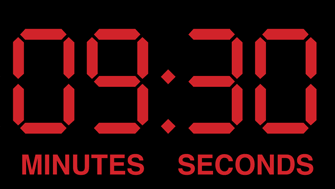If you want private, confidential HIV testing and don’t want to be seen going to a clinic or fear making an appointment with a doctor then you should consider a home HIV test. The Home Access HIV tests are the only FDA approved home HIV tests, but are they really confidential and anonymous?
The test can be ordered online and paid for by credit card or paypal. The charges will appear on your credit card statement as “homehealthtesting.com”, but it will not reference which test you purchased. Your hiv test will be sent via mail or UPS in a plain brown box or in a Priority Mail box with a return address of “MLSC Inc”. We do not use your information or share your information with any other company and you will not receive emails from us in the future.
When you receive the test, you phone an 800 number to register your kit by the Home Access Code Number printed inside. The testing laboratory never knows your name, but only the kit number. Follow the instructions for placing your blood sample in the postage paid mailer and send it to the laboratory. After shipping your blood sample, you call back on the same toll-free number after either two or seven days (depending on which kit you purchased) and provide the code number and they will give you your results over the phone. You can also request to speak with a counselor after receiving your results and they will not ask your name.
The 800 number and the code number are printed on a card that you keep after you submit your blood sample. Since there is no name attached to your test, anyone who has the phone number and the code number can access your results. Keep the card in a safe, private place until you can call and receive your results.
After receiving your results by phone you can request a written copy to be emailed to you. The email request will also honor your anonymity if you set up a free private email account (like hotmail or yahoo) without your name and send an email to hivresult@homeaccess.com. Be sure to provide your code number in the email. When results are sent via email they are sent in a Portable Document Format (PDF) attachment which includes your Home Access Code Number (HACN) and your result. The email is not sent in encrypted form and therefore your result, HACN and email address could be read by someone on the Internet. If you have concerns about these limitations you can request your results via U.S. Mail, but then you will have to provide a mailing address for the results.
If you choose the phone results option, then the only trace of the test that you will have is the test kit itself which can be safely discarded in your household garbage or you can take it somewhere else to dispose of the box that clearly says “HIV-1 Test System”.
The Home Access Health Corporation has gone to great lengths to insure your privacy while giving you access to vital health information. The test is 99.9% accurate and you can find out your test results from a phone call and it will remain completely confidential since the testing lab will never know your name.


 Every 9 1/2 minutes, someone in the United States is infected with HIV, the virus that causes AIDS. A startling fact presented by the Centers for Disease Control (CDC). CDC arrived at the 9½ minutes figure by dividing the number of minutes in one year by the 56,300 new HIV infections that were estimated for 2006. This result indicates that, on average, one new HIV infection occurs every 9.34 minutes in a year.
Every 9 1/2 minutes, someone in the United States is infected with HIV, the virus that causes AIDS. A startling fact presented by the Centers for Disease Control (CDC). CDC arrived at the 9½ minutes figure by dividing the number of minutes in one year by the 56,300 new HIV infections that were estimated for 2006. This result indicates that, on average, one new HIV infection occurs every 9.34 minutes in a year.
